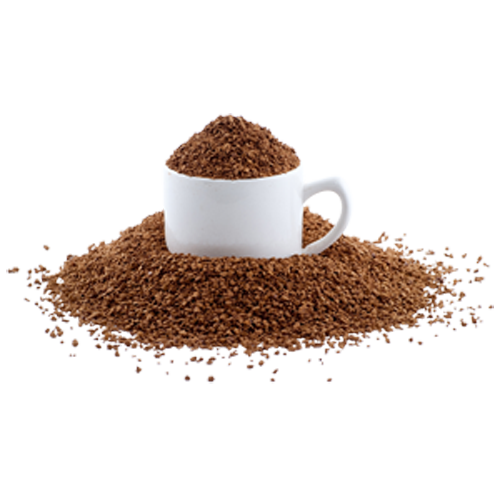Is your teenager stressed as exam-time approaches? Like many others, they may succumb―not without risk―to the lure of various products.
The search for easy solutions
In a world where the quest for performance and convenience is paramount, it can be tempting for a young person to turn to a variety of substances during exam time.
Many adolescents and young adults have a difficult time, and some are attracted to "easy options" in the hope of getting through it or getting better results. However, it is not without danger!
Here are a few examples of substances that youth may be looking for for non-medical reasons.
Caffeine
At low doses, caffeine is a mild stimulant that improves alertness, attention, concentration, and reflexes. At high doses, its adverse effects often outweigh the benefits.
Prolonged over-consumption of caffeine can lead to a syndrome called caffeinism (or caffeism), with varying symptoms: insomnia, restlessness, nervousness, tremors, headaches, heart palpitations, depression, and so on.
Today, caffeine is found in various formats in many consumer products. Its presence is sometimes clearly advertised and sometimes subtly concealed. Some of these formats include over-the-counter tablets available in pharmacies.
Energy drinks are industrial products that are high in caffeine (up to fourteen times more than soft drinks) and sugar (up to ten teaspoons in a 237 ml can). Other ingredients include taurine (an amino acid) and guarana (a plant whose seed has the highest caffeine concentration in the plant world).
Energy drinks are inexpensive and easily accessible at the corner store or grocery store. As a result, they are considered "trivial" beverages by youth and are becoming increasingly popular. However, they are addictive and produce cravings that are accompanied by other adverse effects such as headaches and fatigue.
Psychostimulant products
Several prescription drugs and medications (methylphenidate in particular, better known by one of its trade names: Ritalin®) as well as some over-the-counter medications are among the psychostimulant products.
People who use them recreationally generally seek an increase in alertness and concentration or a feeling of euphoria. However, these products cause a multitude of adverse effects, including agitation and irritability. At high doses, much more severe and serious effects are observed.
When a person takes a psychostimulant available on prescription, they must first have received a medical diagnosis warranting its use. In the case of methylphenidate, this could be a diagnosis of attention deficit disorder with or without hyperactivity (ADHD).
Cannabis and natural products
Among young people, the use of cannabis during exam periods is both frequent and paradoxical. Users most likely seek its soothing and relaxing, or perhaps euphoric, effects, regardless of the possible impact on their performance or academic results.
Cannabis impairs cognitive abilities such as attention and concentration, as well as memory and judgment. So it's probably not the best option! Since its legalization, some parents have been concerned that their children may trivialize their use of cannabis, and probably rightly so.
Several other natural products affect the brain, in particular by exerting relaxing effects. Others are known to enhance physical or cognitive abilities by increasing muscle mass or improving memory or concentration, for instance.
Nevertheless, natural products are not without danger either. Under certain circumstances, they can cause sometimes serious adverse effects. In addition, claims of efficacy for such products should always be supported by scientific evidence.
Overcoming stress in a different way
Adopting a healthy lifestyle generally reduces the stress that young people may feel. With this in mind, here are a few simple steps you can recommend to your teenager to help them feel more "alert" during the difficult weeks of the school year:
- Go to bed early and at approximately the same time each night.
- Avoid stimulating activities just before going to bed.
- Make moderate use of technological devices.
- Eat healthy foods at regular hours.
- Exercise.
- Take time to relax and enjoy yourself.
- Familiarize yourself with a relaxation technique, such as mindfulness meditation or visualization.
- Prepare methodically and well in advance for exams.
Keeping an eye open... for the right reasons!
If you are a parent and keep medication at home, remain vigilant. Limit access to medications by keeping them in a safe place. Take any unnecessary or expired medication back to the pharmacy. Clean out your medicine cabinet regularly.
You can discuss the use of medications and other substances with your teenager to raise awareness about the risks involved. Encourage discussion by asking open-ended questions.
It's best to watch out for signs of behavioural changes or substance abuse in youth. If your teenager shows symptoms indicative of substance use, speak to them about it and intervene quickly to avoid the vicious cycle of addiction and its significant health risks.
Speak to your pharmacist for additional information about the safety of medications and other substances.


